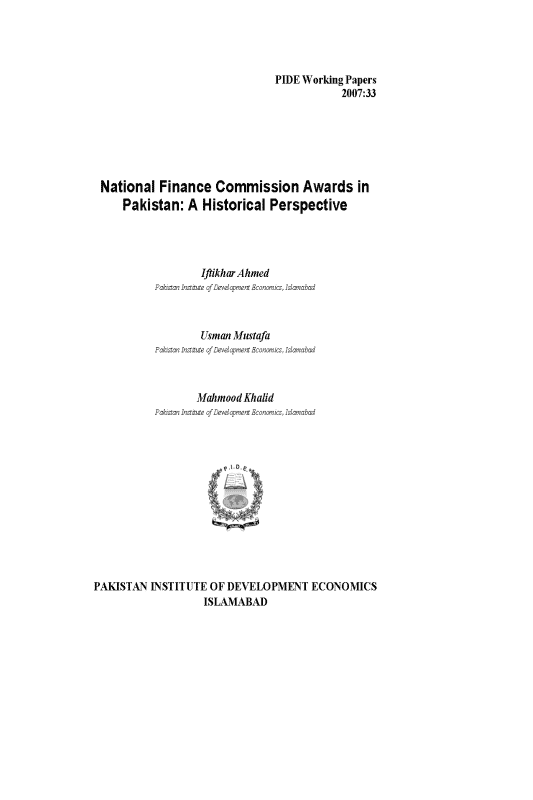National Finance Commission Awards in Pakistan: A Historical Perspective
This study explores the evolution of fiscal resource distribution in Pakistan. Pakistan is a federation comprising four provinces, federallyadministered areas, and the Islamabad Capital Territory. Being a central type of government, most of the revenues are collected by the centre and then redistributed vertically between the federal and the provincial governments, and horizontally among the provinces. Provinces then also redistribute revenues among lower tiers of the government, through a revenue-sharing formula. A thorough look at the history indicates that this process has been complex and has a far-reaching impact. A less systematic approach has been adopted to decentralise the financial matters. Over time, the divisible pool has expanded due to heavy reliance on indirect taxes as well as improvement in the collection. Population is the sole distribution criteria, adopted in all NFC awards from the divisible pool. This has raised friction among the provinces, necessitating inclusion of other potential variables evolved from international best practices. In addition to that, absence of technical experts and permanency of the NFC is another impediment. The NFC is supposed to provide the framework for amicable distribution of resources between the federal and the provincial governments for the joint goal of development and prosperity.




